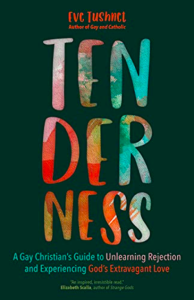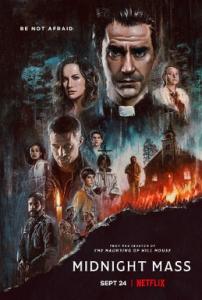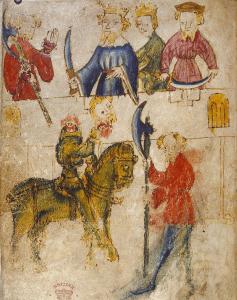Well! 2021 was not as bad as 2020, so that’s really something. How about those arts?
Cinema
I’ve got less here than usual: it seems to have been sort of a weak year as far as films and TV, on the whole, and despite the fact it’s been out for two months already I still haven’t seen Dune, so there goes like half my material.
I do have a good deal to say about the new Wheel of Time adaptation on Amazon, though. I read most of the books back when I was in high school, and although I haven’t been back to them since, I remember them fairly well. Robert Jordan created a pretty compelling world, and there was a lot to both hope for and be worried about in any adaptation. So how’d Amazon do?
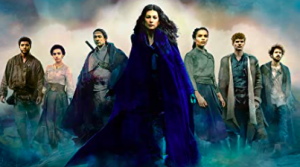
Positives first. The cast is outstanding, especially Rosamund Pike and Zoë Robins. I’ve also been really impressed with their handling of the plot: the conceit is that this is a “different turning of the Wheel,”1 so they have room to hit most of the same beats while getting to them in different ways. This allows them to be reasonably faithful while adjusting to the demands of a new medium and still surprising fans. The setting has also made a point of including a lot of nods to the Asian influences Jordan drew on in creating the world; a lot of the architecture is Persian or Indian in inspiration, and the use of white as a mourning color in episode five struck me as a nice touch.
On the down side, some of those new plot possibilities they took advantage of were … stupid, especially in the eighth and final episode of the season. Some of these flaws seem to have been attempts to patch over the departure of Barney Harris, one of the leads, but the stitches are painfully visible. Worse almost everything about the battle with the trollocs at Fal Dara was weird. Why was a Shienarian king, of all people, too good to call on the White Tower for aid? Why was a woman who couldn’t channel strongly enough to reach Aes Sedai level the one in charge of the few channelers in the city, including Nynaeve and Egwene, the two most powerful channelers in centuries? Why were the channelers all the way back in front of the citadel instead of up where the, you know, battle was happening at the exterior wall? This is all just one episode—less, just one sequence of one episode—but when that episode is the last in a season, it gives you the feeling of landing on a twisted ankle.
All in all, I’m cautiously optimistic for the second season, but it’s got its work cut out for it.
Literature
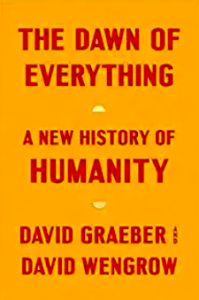
Pickings were again slim, but I have two entries to discuss. First, although this technically came out last year, is David Wong’s Zoey Punches the Future in the Dick. The second installment in the Zoey Ashe series, this novel (like its predecessor) revolves around the theme of figuring out how to be a good person and use the power that’s available to you, when you’re trapped in a rotten system that you are at least a little bit responsible for. This makes it sound like a heavy, didactic story, and maybe to some people it is in the end; but for me, it succeeds through a combination of breathlessly-paced excitement, a charmingly vulgar humor, and a surprising sense of heart in the midst of what’s otherwise an exceptionally flashy version of cyberpunk.
The other, a little unusually for me, is a nonfiction book: The Dawn of Everything, by David Graeber and David Wengrow. Still more unusually, I’m recommending it even though I haven’t finished it yet! (In my defense, it’s about five hundred pages long, not counting end notes, and I’ve only had it for a week, so I feel like being a third of the way through is fairly respectable.) It’s a reëvalutation of the conventional narrative of history and culture that most of us grew up with: societies start out as hunter-gatherers, then become pastoralists, then learn to farm, and so on, advancing up the ladder toward the complex, centralized state. Starting with Native American critiques of European civilization in the seventeenth century, Graeber and Wengrow challenge the idea that such evolution is inevitable, or even in any real sense “evolution” rather than deliberate choice—both on the part of societies that go in for the centralized state and on the part of those that don’t. The book is a little repetitive, and occasionally advances theses I’m not sure about, but I’m finding it truly fascinating.
Audio
I’m choosy about podcasts; half the time when I open the app on my phone it’s to go back to The Magnus Archives. However, I’ve found three podcasts this year that I’m pretty taken with. One is a Rusty Quill product like Magnus (and featuring several of the same voice cast), a sci-fi improv comedy called Stellar Firma. Set several hundred years in the future, it stars David-7, a clone, and his deranged manchild goblin of a boss, Trexel Geistman, both of whom work for the titular corporation, which designs and builds custom planets for the obscenely wealthy of the galaxy, a là the Magratheans of the Hitchhiker’s series. The show’s a delight, and has engendered some extremely fun fan art, particularly animatics.
There’s also another horror podcast, The White Vault. Set principally in Scandinavia, this recounts the discovery of certain remote archæological sites that contain sophisticated architecture, hints of large-scale human sacrifice, and cyclopean statues that seem to move when you’re not looking. Multiple international teams have been uncovering such sites in Svalbard, China, and Patagonia, and the narrator of the podcast has been assembling their findings—only to discover her own mysterious link to the material she is investigating …
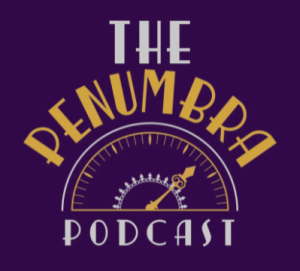
Thirdly, The Penumbra Podcast. This is a sci-noir set in the distant future, when most of the human population has relocated to Mars. Juno Steel is a classic hard-boiled dick (in most senses of the word), navigating a world of shady superstars, no-nonsense law enforcement, honey-tongued crooks, and childish maniacs. His only real loves are alcohol and the truth—and just maybe the homme fatale who betrayed him, broke his heart, and disappeared. As a Bogart fan I’m an absolute sucker for this kind of thing, so I’m on board.
Here’s to 2022!
Last but not least, happy New Year! I don’t have metrics on my international readership any more, but here are eight of the ten most widely-spoken languages in the US (sorry, speakers of Arabic and Vietnamese, but I couldn’t get those ones to format correctly!):
Frohes Neues Jahr
С Новым Годом
새해 복 많이 받으세요
Bonne Année
Maligayang Bagong Taon
新年好
Feliz Año Nuevo
Happy New Year!
1For those not familiar, the idea of the eponymous Wheel of Time is that human history recurs in a cycle of seven ages that come around again and again. Everyone is reincarnated, and everything plays out with the same general pattern, but with new details depending on both personal choices and the metaphysical demands of the Wheel.
All images provided for under fair use.



